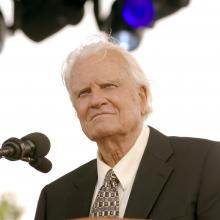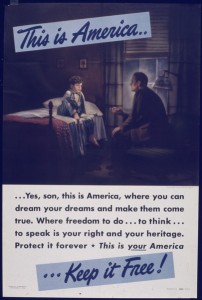rights
But while we disobey unjust laws to obey the moral laws we have been given by God, there’s a flip side: When human laws do serve the common good or restrain evil, we should obey them.
Senator Ed Markey (D-MA), along with the support 40 co-sponsors, have amassed the 30 votes necessary to seek to reverse the net neutrality repeal through the Congressional Review Act.
Good and Gracious God,
Yet again,
our nation grieves.
Yet again,
the life of a child
has been cut
dreadfully short.
Yet again,
we all rally to our
political centers
to cry out
for our guns,
for our rights,
for our safety,
for rational thought...
SINCE HIS ELECTION as the 265th successor of St. Peter, Pope Francis has provided a refresher course on Catholic social teaching to the world’s 1.2 billion Catholics. “Catholic social teaching is no longer a secret,” says Jean Hill, director of peace and justice for the diocese of Salt Lake City. “Everything Pope Francis is saying comes from social doctrine and is about social justice.”
Through his various homilies, speeches, and meetings, Francis is “reading the signs of the times” and making practical application to the issues of the day. Some of his most powerful statements to date were made in his first pastoral document, “The Joy of the Gospel,” including this declaration: “I prefer a church which is bruised, hurting, and dirty because it has been out on the streets, rather than a church that is unhealthy from being confined and from clinging to its own security.”
Pope Francis is calling the faithful to be more merciful, compassionate, joyful, and centered upon the needs of the poor and vulnerable. He wants a church that sees the human person before the law and one that does not “obsess” about a narrow set of issues, but affirms both human life and human dignity. He invites Catholics to pray, reflect, and embrace the beauty and breadth of Catholic social teaching—a rich tradition that is predicated on the dignity of the human person.
The United States Conference of Catholic Bishops (USCCB) defines Catholic social teaching as “a central and essential element of our faith. Its roots are in the Hebrew prophets who announced God’s special love for the poor and called God’s people to a covenant of love and justice.” This teaching is also founded on the life and words of Jesus. It posits that “every human being is created in the image of God and redeemed by Jesus Christ, and therefore is invaluable and worthy of respect as a member of the human family.”
OURS IS A CHRISTIAN FAMILY STORY. It is also a loving, loyal, confused church story. There’s nothing all that unusual about it, really. But precisely because similar stories are unfolding in countless families and churches today, I want to share it.
I want you to see how sexual orientation and deeply held beliefs are at odds in ways that injure those we love. This debate is not simply about beliefs and rights; it’s about people who are created in God’s image. Those people may be like you or entirely unlike you. They may be your roommate or neighbor, your best friend or a colleague. They may be your son or daughter.
My dad would later tell me the day I came out to him was the worst day of his life. His sister had passed away the year before; his father years earlier. But the day I said “Dad, I’m gay” was the worst day of his life. To his credit, though, he didn’t tell me that at the time. He hugged me and listened as I nervously stumbled over my words for an hour and a half. Then he told me he loved me.
My mom, too, responded with open arms, but the news was hard for her to hear. She could barely eat for several days afterward, and she spent much of the next year deeply dispirited. Still, I was grateful for my parents’ unfailing compassion and love.
What that love would ultimately look like, though, was unclear.
Adaptation is how a bitter and broken South survived its own worst instincts after the war. Progressive pockets emerged in college towns and later in large cities. Hungry for Northern business, the region became less racially polarized. In time, a black man could become mayor of Atlanta and another could become the Episcopal bishop of North Carolina.
The Rev. Martin Luther King, Jr.’s dream of 50 years ago came to seem possible. Distant, yet possible.
But now the dream has receded. The fact of a black president seems to have reopened a pulsing vein of racism. Operating under cover of fiscal austerity, vengeful state politicians are gutting decades of programs that helped the South move forward by helping blacks and Latinos to have a chance.
No more affirmative action, they say; no more dark-skinned citizens flocking to voting stations; no more voting districts shaped by fairness; no more protections from ground-level aggression against people of color.
Once again, as happened in the 19th century, impoverished whites who should be lining up to resist predatory behavior by the moneyed class are being turned against their own best interests by race politics.
What do I love about America? I love the land, one of the most spectacularly beautiful countries in the world (and I’ve visited many of them). I love walking our long stretches of beaches, hiking our majestic mountains, seeing the desert skies, walking beside the rivers, sailing along the coasts, and visiting hundreds of lakes in my home state of Michigan, where I camped as a kid. I even love some of our big cities! “O beautiful for spacious skies, for amber waves of grain, for purple mountain majesties, above the fruited plains.” I love our many diverse cultures, including their music, their food, their art, their sports, and their particular stories and histories.
I especially love our best national values: freedom, opportunity, community, justice, human rights, and equality under the law for all of our citizens of every race, creed, culture, and gender, not just for the rich and powerful. In particular, I love our tradition and history of democracy, its steady expansion here, and how it has inspired the same all over the world. We take legitimate pride in seeing how our founding documents have been the models for many new nations.
BREAKTHROUGHS ON immigration reform will make life easier for some Latino immigrants, but in the sweltering, often-toxic fields where farm workers toil each summer from Maine to California, conditions can still be dehumanizing and dangerous. There is a silver lining, however. With the burgeoning growth of the nation's Latino population, there are more advocates than ever working to improve the plight of the men, women, and often children who do hard labor on our nation's farms.
With a mostly young, deeply committed staff, the Florida-based Coalition of Immokalee Workers (CIW) is doing solid grassroots work to make life better for workers in the state's tomato industry. With cooperation from 11 food retail and food service corporations, CIW has implemented the Campaign for Fair Food, which has brought modest wage increases, worker protections, and grievance procedures to farms that produce 90 percent of the state's tomato crop.
Using a worker-led administrative structure and significant public pressure, CIW has brought companies such as McDonald's, Burger King, Pizza Hut, and KFC into its program that asks corporate partners to kick in an extra penny per pound for the tomatoes they buy. That premium is passed on to growers to increase worker pay.
Elbin Perez, 23, a farm worker from Guatemala, has been working in the U.S. for six years, sending part of his wages back home to his parents and five siblings. As a CIW member, Perez leads "worker-to-worker education programs." Those trainings educate workers about CIW's code of conduct, which growers have agreed to uphold. Reforms include use of time clocks, guaranteed minimum wage, and water and shade breaks.
While I stand with Sen. Rand Paul on the question of the use of militarized spy drones in American airspace and (potentially) on Americans, I am deeply troubled by our use of these weapons in other lands, too, where they are responsible for the deaths of hundreds of children and other innocents.
There's something dishonorable about killing without the risk associated with the act, no matter how heinous the target or valuable and beautiful the persons you put at risk in order to personally kill.
The United States is the only democratic country in the world where a candidate can be elected as president without earning the highest number of votes.
In the midst of competing campaigns and critical choices leading up to Election Day, one of the most common assumptions is that U.S. citizens directly select their president. However, far too many fail to fully understand that such direct selection is not our reality, for within our complex electoral system – known as the Electoral College – the will of the people does not always translate into final results. During the presidential elections of 1876, 1888, and 2000, the leader in popular votes did not claim victory, and some believe a similar scenario may take place in the near future. And so, when a candidate receives the majority of votes but is not sworn into office, we recognize a gross injustice that requires immediate and significant transformation.
The following is from a letter by Billy Graham posted recently on the Billy Graham Evangelistic Association website:
"Some years ago, my wife, Ruth, was reading the draft of a book I was writing. When she finished a section describing the terrible downward spiral of our nation’s moral standards and the idolatry of worshiping false gods such as technology and sex, she startled me by exclaiming, “If God doesn’t punish America, He’ll have to apologize to Sodom and Gomorrah.”
She was probably thinking of a passage in Ezekiel where God tells why He brought those cities to ruin. “Now this was the sin of … Sodom: She and her daughters were arrogant, overfed and unconcerned; they did not help the poor and needy. They were haughty and did detestable things before me. Therefore I did away with them as you have seen” (Ezekiel 16:49–50, NIV).
I wonder what Ruth would think of America if she were alive today. In the years since she made that remark, millions of babies have been aborted and our nation seems largely unconcerned. Self-centered indulgence, pride, and a lack of shame over sin are now emblems of the American lifestyle."
Yes, there are plenty of examples to support the case Graham is making, but is it fair or accurate to suggest that all points indicate a fundamental moral decay?
This week, I and many U.S. Christian leaders signed on to a letter, concerning a re-introduced version of Uganda’s Anti-Homosexuality Bill, a bill which perpetuates some alarming and hateful language about the LGBT community in Uganda, and indeed, around the world. When it was originally introduced in 2009, it made homosexuality an act punishable by death. While the most draconian measures have been removed, the bill still calls for life imprisonment for people who are homosexual, and makes even discussions about sexual orientation illegal, stifling any opportunity to build a civil and constructive dialogue. How can we expect to come together to bridge the divides if we cannot even bring ourselves to sit down together and talk? What is even more heartbreaking, so surprising, is that Christian leaders in Uganda continue to support it.
What are we calling for in this letter? It is a simple message, and one that all who profess a Christian faith should be able to agree with:
All human beings have been created in the image and likeness of God, and Christ teaches that we are to love our neighbors as ourselves. All acts of bigotry and hatred betray these foundational truths.
Politically, the right to online privacy seems like a no-brainer. Just as employers, and the government, shouldn’t be allowed to snoop through one’s personal diary or journal, the privacy of our digital records should be likewise respected, in law and in practice.
But biblically, theologically, and spiritually, it gets more complicated. For instance, what would a “spirituality of privacy” look like? At the core of spirituality is a connection with the divine. That begins in our heart of hearts and is by necessity a private, solitary practice. But it doesn’t end there. Genuine, life-transforming spirituality is personal, but never “private,” in the sense of “restricted to me alone.” Rather, spirituality is about the connection between a person and the divine and about the connection between a person and other people. In other words, there is an essential communal, public aspect of spirituality. Genuine spiritual enlightenment leads not only to an enriching of our connection with God, but with one another as well. Thus in some ways the distinction between a “private” spirituality and our public face is an artificial one, and at our best these two aspects of our being will be in harmonious synchronicity.
A playlist for the working class: Ten songs in honor of May Day and workers everywhere.
John Lennon, "Working Class Hero"
This song from John Lennon's first post-Beatles solo album, 1970's John Lennon/Plastic Ono Band, is about working class folks being "processed" into the middle class or the "machine," according to what Lennon told Rolling Stone magazine in an interview the same year the album released. "A working class hero is something to be," is the song's mantra and refrain.
About every five years the Farm Bill addresses a broad set of food and agricultural policy issues. Commodity price supports, farm credit, trade, agricultural conservation, research, rural development, energy, and foreign and domestic food programs were just some of the issues included in the Food, Conservation, and Energy Act of 2008, as the last Farm Bill legislation was officially titled.
The Farm Bill is also known for the broad range of policy stakeholders who work on it, including state organizations, national farm groups, commodity associations, conservation advocates, rural development organizations, and faith-based groups.
But even with its inclusive set of policy issues and actors, the Farm Bill is notable for one issue policymakers and advocates doesn’t touch: People who work on farms.

No Room at the Inn. Image via Wylio, http://bit.ly/ADRtVi.
LONDON — Britain's Court of Appeal has ordered a pair of Christian innkeepers to pay 3,600 pounds ($5,800) in damages to a gay couple that was told they could not share a room in the couple's guesthouse.
The three-judge panel rejected an appeal by the innkeepers, Peter and Hazelmary Bull, in their conviction of telling Martyn Hall and Steven Preddy they could not share a double room.
The court in London told the couple, who ran the Chymorvah House in Cornwall, England, to pay the penalty.
Nearly 50 million Americans are currently living below the poverty line (that is $22,000 for a household of four) and half of them are working full time jobs.
In our current economic system, the "happiness" of the super-elite is secured while the lives, liberty, and access to basic needs of the rest suffer. This isn't the American Dream and it isn't God's dream either.
Interfaith Worker Justice has published a Prayer Service designed to help people reflect on a moral economy within the context of their religious tradition. Written for clergy and religious leaders, the prayer service is aimed for those Occupying Wall Street and other cities, and for congregational use.












